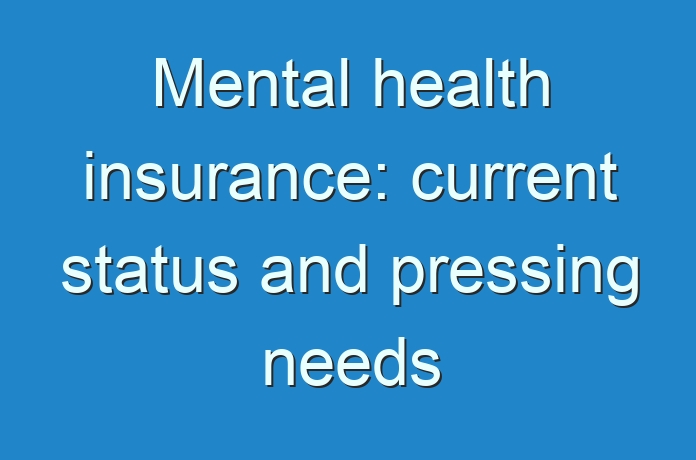
Concern for mental health continues to be clouded with inhibition and stigma in Indian society today. Lack of awareness among the below poverty line families have triggered harmful and often fatal superstitions that have resulted in many lives lost without proper healthcare.
Fear of isolation still stops a patient of mental disorder to claim insurance even though there are proper rules laid down by the Government of India supporting provision of mental health insurance. Let’s discuss the prospect of mental health as a deserving candidate for insurance.
What is mental health?
According to the World Health Organisation (WhO) mental health includes recognition of the ability to realize one’s intellectual and emotional potential. WHO also includes competence, intergenerational dependence, subjective well-being, autonomy and perceived self-efficacy under the ambit of mental health.
As far as India is concerned, the Mental Healthcare Act 2017 says, “Mental illness means a substantial disorder of thinking, mood, perception, orientation or memory that grossly impairs judgment, behaviour, capacity to recognise reality or ability to meet the ordinary demands of life, mental conditions associated with the abuse of alcohol and drugs, but does not include mental retardation which is a condition of arrested or incomplete development of mind of a person, specially characterised by sub normality of intelligence.”
Grounds for claiming mental health insurance
WHO acknowledges several mental disorders such as schizophrenia, depression, anxiety and post-traumatic stress to be fit for provision of mental health insurance plans. Since India follows the international classification of diseases (ICD-10 and ICD-11) of WHO, it allows all health insurance companies to extend the same support to patients of mental disorder.
Some of the common facilities a patient of mental disorder can avail are mandatory 24-hour hospitalization, doctor’s check-up and treatment expenses.
In India, mental retardation does not qualify as a reason for obtaining mental health insurance. Although the act includes mental instability due to substance abuse, drugs and alcohol, the matter is subject to consideration by different insurance companies as they consider such mental conditions to be intentional and self-induced.
Status of mental health insurance in India
The Supreme Court on June 16, 2024, sought explanation from the Insurance Regulatory Development Authority of India (IRDAI) for the alleged inability to avail mental health insurance through many companies despite the law being active since 2017.
The court had issued affidavits to the regulatory authority in response to a PIL alleging that insurers are refraining from providing the due facility to many deserving candidates, resulting in deterioration of their health.
Why mental health insurance is urgent
WHO in its report ‘Investing In Mental Health’ maintained that psychiatric patients are more prone to human rights violations and are subject to discrimination across all strata of healthcare and societal acceptance.
The COVID-19 outbreak has resulted in a staggering rise in the cases of depression globally. Mental health, if left misunderstood, often leads to fatal self-harm. Thus, it is mandatory for the IRDA to ensure that insurance companies show humanitarian approach and extend insurance packages to patients of mental health so that they recover quickly and mingle with the society fearlessly.





